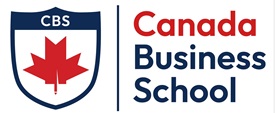How Canadian Colleges Prepare Students for the Job Market

How Canadian Colleges Prepare Students for the Job Market
Introduction
In today’s competitive economy, employers seek candidates who possess both academic knowledge and practical skills. Canadian colleges have adapted by designing programs that bridge the gap between classroom learning and real-world employment needs. Their approach focuses on hands-on training, industry partnerships, career services, and adaptable learning pathways to ensure graduates are ready to thrive in the job market.
1. Industry‑Relevant Programs
Canadian colleges regularly consult with industry experts to design and update their curricula. This ensures:
- Skill relevance: Courses reflect the current demands of fields like healthcare, technology, business, and skilled trades.
- Real-world projects: Many programs integrate case studies, simulations, and industry assignments.
- Specialized certifications: Students often graduate with both a diploma and industry‑recognized certificates.
2. Cooperative Education (Co‑op) & Internships
A signature feature of the Canadian college system is co‑op education, where students alternate between academic study and paid work placements. Benefits include:
- Professional experience before graduation.
- Networking opportunities within chosen industries.
- Improved resumes that give graduates a competitive advantage.
3. Strong Employer Partnerships
Colleges cultivate relationships with local and global employers through:
- On‑campus recruitment events.
- Industry advisory boards that guide program content.
- Work‑integrated learning opportunities tailored to employer needs.
4. Career Services & Job Search Support
Canadian colleges offer dedicated career centers, providing:
- Resume and cover letter workshops.
- Mock interviews and networking sessions.
- Access to exclusive job boards and hiring fairs.
5. Focus on Soft Skills
While technical expertise is essential, employers increasingly value:
- Communication skills.
- Problem‑solving abilities.
- Teamwork and adaptability.
Colleges embed these into classroom discussions, group projects, and extracurricular activities.
6. Support for International Students
Recognizing the diverse student body, Canadian colleges provide:
- Guidance on Canadian workplace culture.
- Support with work permit applications.
- Language enhancement programs to improve English/French proficiency.
7. Applied Research Opportunities
Many colleges involve students in applied research projects alongside faculty and industry partners, allowing them to:
- Solve real-world challenges.
- Experience innovation and product development.
- Build portfolios that impress potential employers.
Conclusion
Canadian colleges prepare students for the job market through a holistic approach combining academic rigor with hands-on experience, industry collaboration, and soft skill development. This integrated model helps graduates transition smoothly into successful careers and adapt to changing economic landscapes.
SEO Keywords to Include Naturally:
Canadian colleges, job market preparation, work‑integrated learning, co‑op programs, Canadian education system, career services, industry partnerships, international students in Canada, soft skills development.
